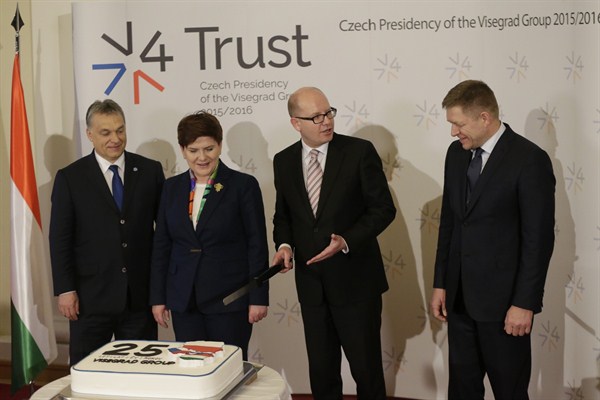The migrant and refugee crisis, the dangers lurking beneath the surface of the eurozone, the United Kingdom’s potential exit, war just beyond its borders—the European Union arguably faces the greatest risks in its nearly six-decade history. Linked to all these challenges are some of the countries of Central and Eastern Europe, which once most enthusiastically embraced the EU project but are now starting to push back against Brussels.
An extraordinary conference of the prime ministers of the Visegrad Group—Poland, Hungary, and the Czech and Slovak Republics—on Feb. 15 led to a statement reasserting the members’ insistence on “more effective protection” of the EU’s external borders to “stem the migratory flow.” It also repeated the countries’ opposition to a quota system for resettling refugees through the EU. The four leaders nevertheless couched their declaration as an attempt to preserve the EU and protect its Balkan members and neighbors from a mounting crisis.
The Visegrad governments share a common streak of social conservatism and nationalist rhetoric—or what their supporters call patriotic politics. Poland and Hungary, in particular, are forming a common front against certain aspects of EU norms. The new conservative Polish government of the Law and Justice party (PiS) has even been accused of aping Hungary’s shift toward illiberal democracy under Prime Minister Viktor Orban—by pushing through strong-armed constitutional changes, exerting control over the media and purging figures appointed by the previous government. In January, the European Commission launched an unprecedented audit into the rule of law in Poland, the region’s most populous country and largest economy.

